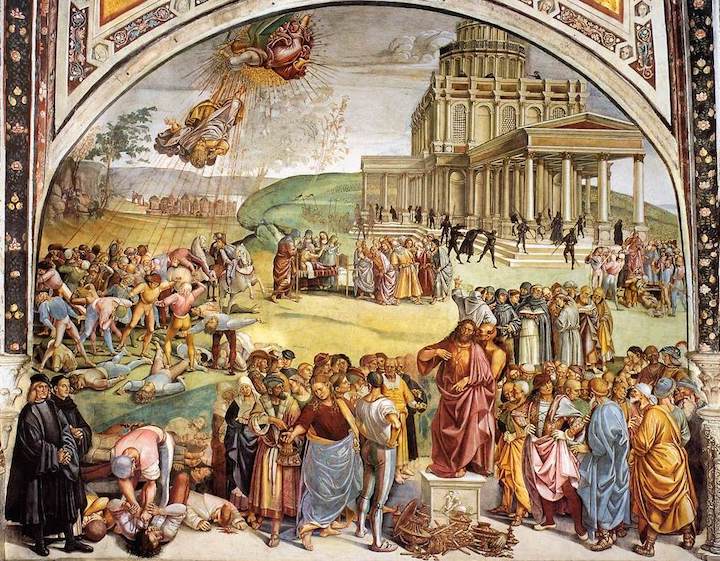- Feb 5, 2002
- 166,650
- 56,274
- Country
- United States
- Faith
- Catholic
- Marital Status
- Married
- Politics
- US-Others
Robert Hugh Benson wrote Lord of the World in 1907, just four years after the Wright brothers invented the airplane and seven years before the bloodbath of the Great War. I first read it more than 60 years ago. I’ve reread it every decade since. Pope Francis has read and publicly mentioned it several times, and the novel has always had an avid, if cultish, following. Set in the near future, it’s a story of the rise of the Antichrist, the climactic battle between good and evil, and the end of the world.
The son of an Anglican Archbishop of Canterbury, Benson was a convert to the Catholic faith and a priest. He wrote at a tipping point in European life, a time of rapid scientific and industrial change, social unrest, and political extremism. Reading the novel today is a curious experience. In some ways, the world and the Church are very different from the future Benson imagined. But the book has extraordinary staying power because it captured – and still captures – certain human instincts and the spirit of the times.
In Benson’s story, the Antichrist is a real person, the character Julian Felsenburgh. The name “Julian” is not an accident; it harks back to the apostate emperor Julian, a nephew of Constantine, who tried to restore Roman paganism in the fourth century. Felsenburgh rises meteorically onto the world scene from an ambiguous past.
He averts a global war, brings a new era of amity among nations, and radiates intense goodwill rooted in the religion of humanism. Mankind has real peace at last. . .although Christianity, regrettably, must be suppressed because of its anti-human obscurantism.
Continued below.

 www.thecatholicthing.org
www.thecatholicthing.org
The son of an Anglican Archbishop of Canterbury, Benson was a convert to the Catholic faith and a priest. He wrote at a tipping point in European life, a time of rapid scientific and industrial change, social unrest, and political extremism. Reading the novel today is a curious experience. In some ways, the world and the Church are very different from the future Benson imagined. But the book has extraordinary staying power because it captured – and still captures – certain human instincts and the spirit of the times.
In Benson’s story, the Antichrist is a real person, the character Julian Felsenburgh. The name “Julian” is not an accident; it harks back to the apostate emperor Julian, a nephew of Constantine, who tried to restore Roman paganism in the fourth century. Felsenburgh rises meteorically onto the world scene from an ambiguous past.
He averts a global war, brings a new era of amity among nations, and radiates intense goodwill rooted in the religion of humanism. Mankind has real peace at last. . .although Christianity, regrettably, must be suppressed because of its anti-human obscurantism.
Continued below.

My Kind of Antichrist - The Catholic Thing
Francis X. Maier: Everyone has an Antichrist: the sin we find easiest to ignore; the hardest to resist and most congenial to our appetites.
